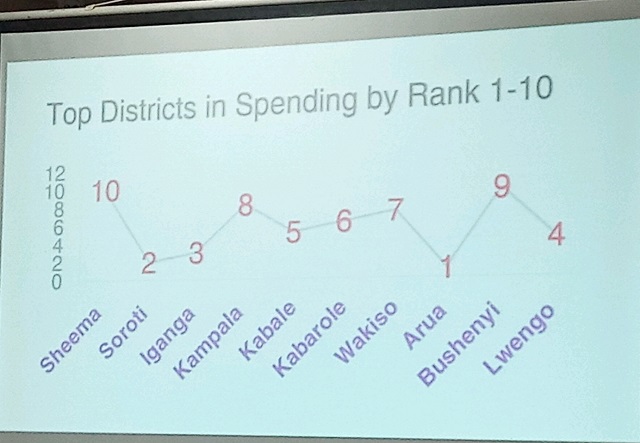
Kampala, Uganda | THE INDEPENDENT | Research conducted on one fifth of Uganda’s districts found that aspirants for parliament, districts chairs and mayorships had spent at least 250 billion shillings three months before the official campaign kicked off. This would loosely put the expenditure for that level of aspirants in the whole country at five times that which would amount to about one and a quarter trillion shillings.
The pre-campaign study by the Alliance for Finance Monitoring [ACFIM] conducted between July 2019 and July 2020, established that this money was spent on buying political support from voters. Among the items on which it was spent were economic empowerment projects, Covid-19 relief and supplies, support to schools, road extensions, ambulance services, immediate cash needs, publicity, campaign administration and social contributions.
The survey which was conducted in 29 districts, 70 constituencies and 14,169 villages across the country targeted 939 aspirants. Of these, 615 were aspirants interested in becoming directly elected Members of Parliament, 151 district women representative aspirants, 116 district aspirants and 57 persons aspiring for mayorship.
Eddie Kayinda, a programme manager at ACFIM said that the study confirms that money is still a preferred option of political engagement. He added that most of the campaign models that aspirants are using focus mainly on money because it’s the single most important reason why people choose to vote for a particular person.
He added that on the campaign trail, about 85.8% of the electoral outcome in the recently concluded NRM primaries were determined by money. The report notes that pre campaign trails to elect party flag bearers were highly monetized and persons who spent more were likely to win electoral races than those who spent less.
The study also showed that candidates in the Western and Central regions spent more money in their campaigns than their counterparts in the East and North of the country. For financial reasons, 123 of those that had participated in direct MP races, 49 district woman MP presentatives, 37 LC5’s and 10 Mayors of cities and municipality aspirants exited the races before they were nominated by the National Electoral Commission as a result of the high cost for contesting for political office.
The study also shows that most of the aspirants – at around 93%- were using money generated earlier from their savings, while others were accessing credit from financial institutions, money lenders and loan shacks while others were using money from their pension schemes.
Felix Kafuuma, a programme’s officer at ACFIM advised candidates to borrow a leaf from developed democracies where candidates don’t spend their personal resources but rather from public fundraisers.
He added that if people use personal resources or borrow from money lenders, it makes politics a do or die activity as people will do everything to ensure that they recoup the resources they have spent on their campaigns.
The report recommends that government comes up with laws that allow candidates to freely fundraise resources especially internally to finance their campaigns without victimization. Ugandans will be going to the polls to vote for their leaders starting with the president and members of parliament on January 14 2021.
*****
URN
 The Independent Uganda: You get the Truth we Pay the Price
The Independent Uganda: You get the Truth we Pay the Price



